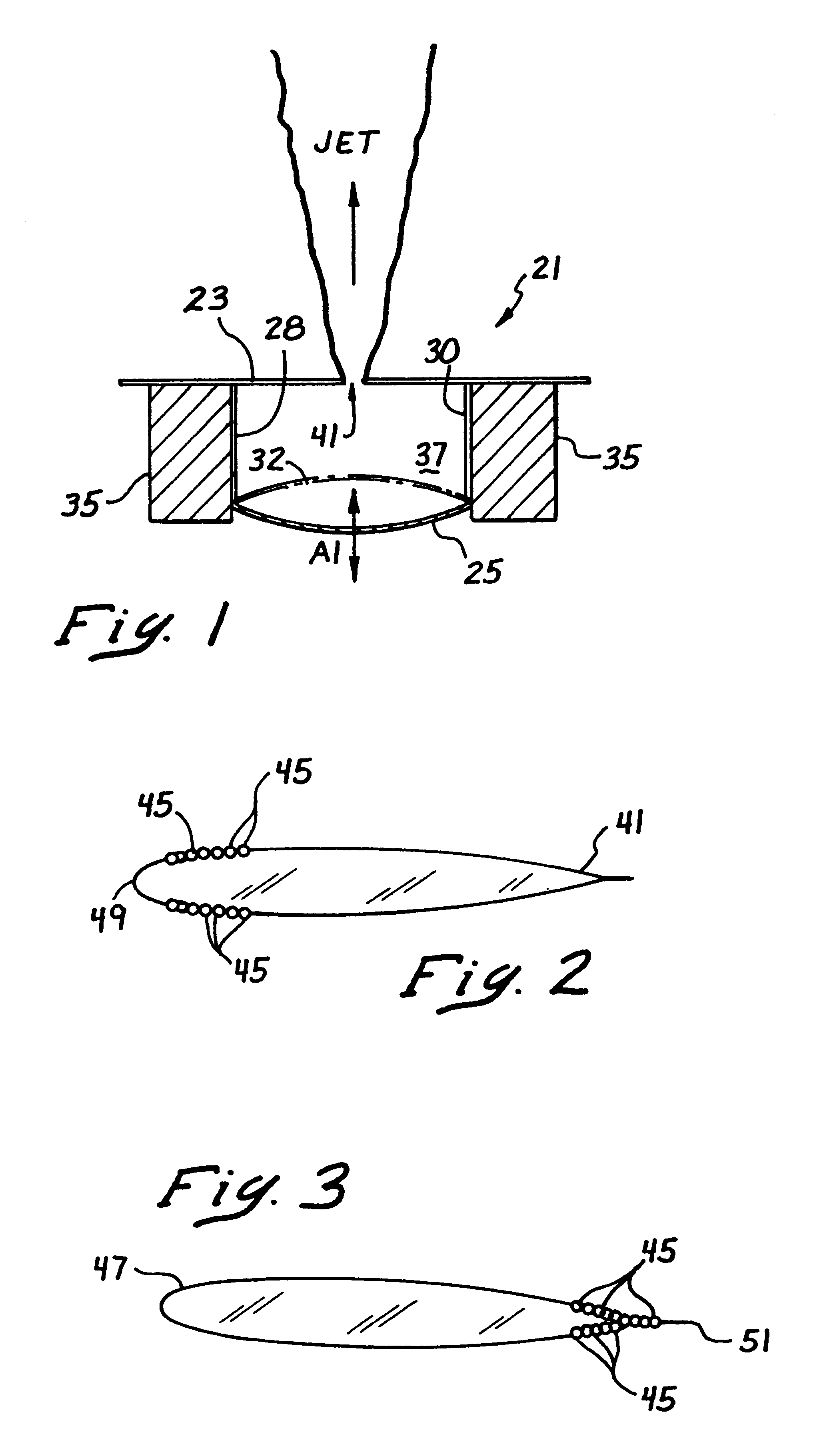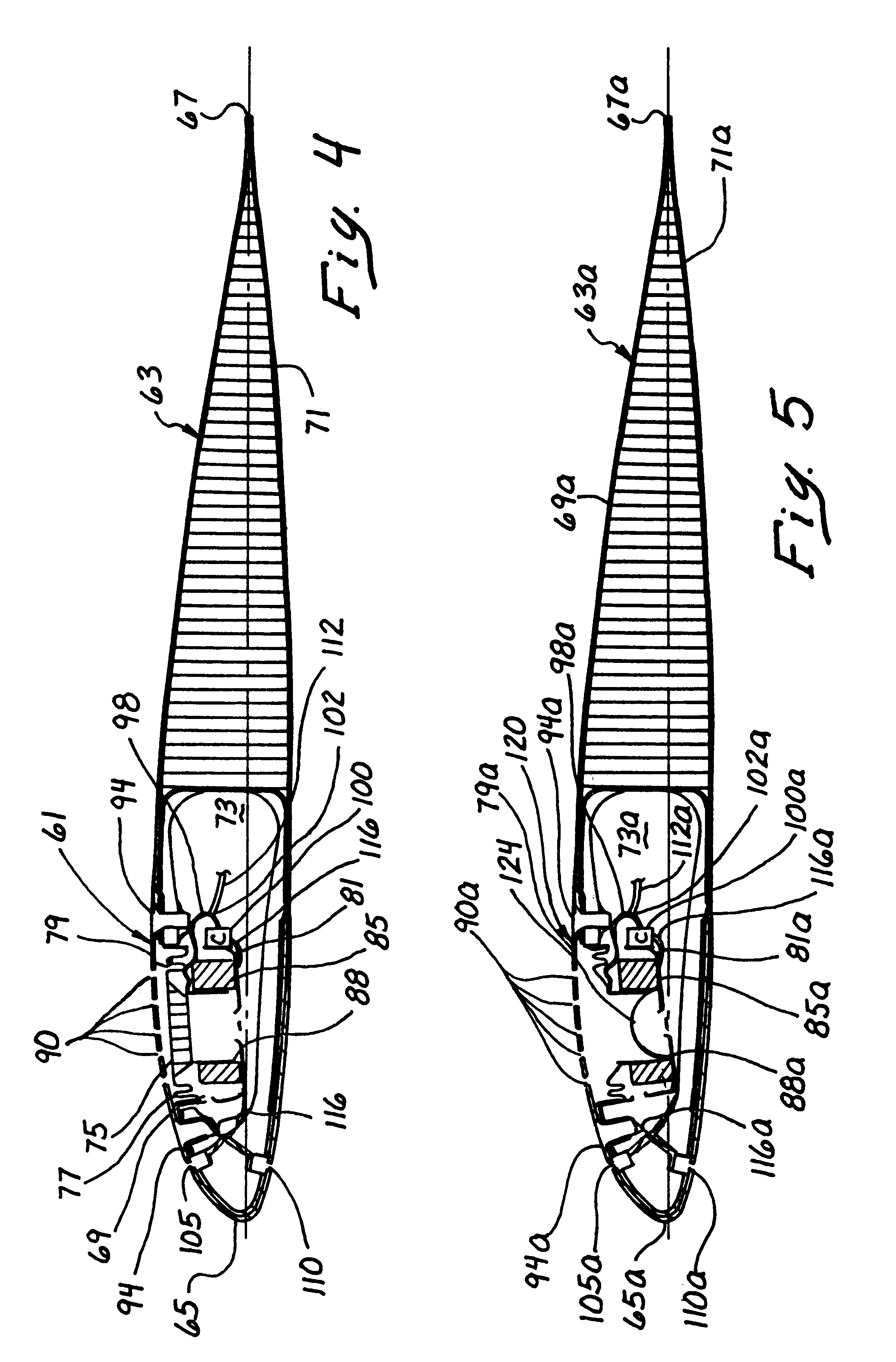Oscillating air jets for reducing HSI noise
a technology of oscillating air jets and noise reduction, which is applied in the field of aerodynamic surfaces, can solve the problems of affecting and affecting the operation of both military and civilians, and achieves the effects of reducing the noise of blades and reducing the noise of hsi
- Summary
- Abstract
- Description
- Claims
- Application Information
AI Technical Summary
Problems solved by technology
Method used
Image
Examples
Embodiment Construction
Referring now more particularly to the drawings, FIG. 1 illustrates an oscillating air jet assembly 21 which is disposed on an aerodynamic surface 23. The oscillating airjet 21 comprises a diaphragm 25 formed of a piezoelectric material. The diaphragm 25 is preferably supported between a first conductor 28 and a second conductor 30, and is movable in the directions of the arrows A1 between a first position indicated by the reference numeral 25 and a second position indicated by the phantom lines 32.
A chassis 35 secures the first conductor 28 and the second conductor 30 to the aerodynamic surface 23. An oscillating current is provided to the diaphragm 25 via the first conductor 28 and the second conductor 30, to thereby electrically stimulate the diaphragm 25 to oscillate in directions of the arrows A1.
Movement of the diaphragm from a first position 25 to a position 32 shown in phantom produces a positive pressure within the sealed chamber 37, and movement of the diaphragm in the opp...
PUM
 Login to View More
Login to View More Abstract
Description
Claims
Application Information
 Login to View More
Login to View More - R&D
- Intellectual Property
- Life Sciences
- Materials
- Tech Scout
- Unparalleled Data Quality
- Higher Quality Content
- 60% Fewer Hallucinations
Browse by: Latest US Patents, China's latest patents, Technical Efficacy Thesaurus, Application Domain, Technology Topic, Popular Technical Reports.
© 2025 PatSnap. All rights reserved.Legal|Privacy policy|Modern Slavery Act Transparency Statement|Sitemap|About US| Contact US: help@patsnap.com



